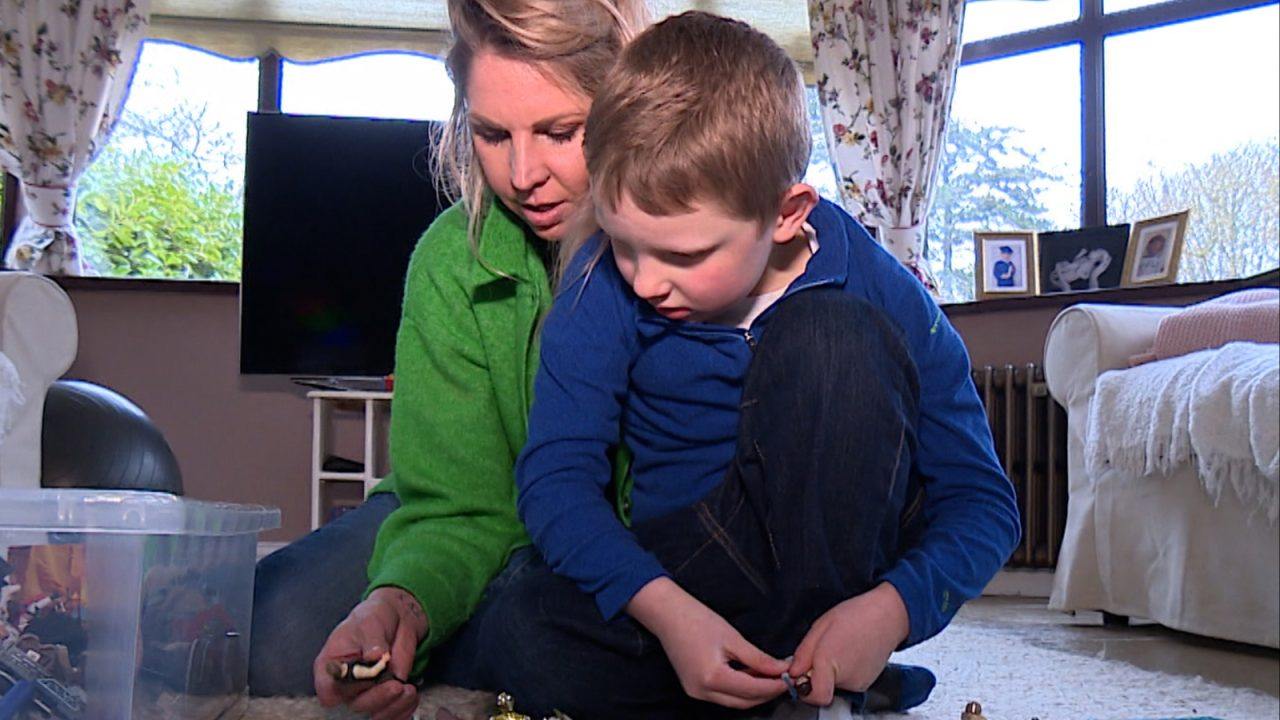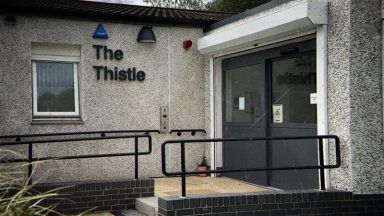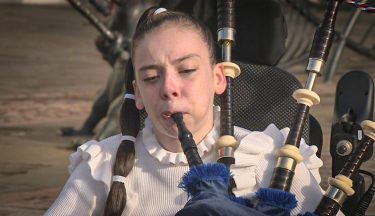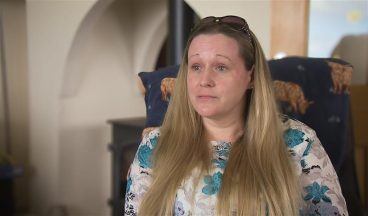When Emily Gilmour was pregnant with her son Oliver, she started to feel unwell.
Initially, the 36-year-old from Inverurie in Aberdeenshire put it down to being an expectant mum.
But after Oliver was born, her health deteriorated rapidly.
“I was noticing pain in my feet, pain in my legs.” she said. “I lost a lot of weight, and my hair was just coming out in clumps.
“I got facial palsy, I was confused, I had headaches and lesions in my skin. It was like I was going mad.”
Doctors ran tests but couldn’t work out what was going on, before a neighbour mentioned the possibility of Lyme disease, the bacterial infection spread by ticks.
“She gave me a book, I read the book, it had a list of the different symptoms,” Emily said. “I thought ‘this is me’.”
Emily believes she may have been bitten by a tick more than 20 years ago when she suffered flu-like symptoms after a hill walk.
The first Lyme disease test was negative, but Emily was told it’s not always picked up when the condition has been left untreated.
Based on the strength of her symptoms, she received a clinical diagnosis from a consultant in Ireland, and then paid for a private antigen test in Germany
“It came back positive for Borrelia – which is Lyme – and the associated co-infections. I thought ‘I now know what I’m fighting’.”
It was around this time that Emily noticed her son was starting to display similar symptoms.
“There were rashes, marks on his face, constant fevers, a chronic cough,” she said.
Oliver also received a clinical diagnosis of Lyme disease, which was then confirmed by the same antigen test.
Emily and Oliver have both had private treatment – but Emily says there is no NHS treatment available for those suffering from the long-term effects.
With their health getting steadily worse, she’s now trying to raise £100,000 through a crowdfunding appeal for her and her son to get more intensive treatment in Germany.
She also wants to raise awareness of the long-term effects of the condition.
“It’s robbed us of our life,” she said. “My husband and I both work and we always have done.
“We’d built a really lovely foundation for us to be able to have a child and give him all the experiences we wanted to give him.
“But we’ve lived and breathed this.”
The Scottish Government said: “It is for clinicians to decide the appropriate treatment based on each individual case
“The clinical management of Lyme disease in Scotland follows National Institute for Health and Care Excellence (NICE) guidance.”
Follow STV News on WhatsApp
Scan the QR code on your mobile device for all the latest news from around the country

























